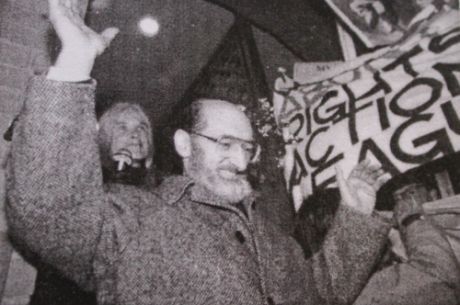Columns
You are here
Labour and the struggle for abortion rights

February 6, 2013
We recently celebrated the twenty fifth anniversary of the Supreme Court’s historic Morgentaler Decision. A broad based movement overturned the federal abortion law and allowed for the establishment of free-standing clinics providing medically insured abortions. The anniversary was noted with events across the country from Vancouver to Prince Edward Island; the largest took place in Toronto, which had been the heart of the struggle, with a packed auditorium at the University of Toronto.
Veterans of the struggle spoke of the campaign that had overturned the law and young activists outlined the barriers that women are still facing. The audience was made up of trade unionists, women’s advocates, students, anti-racist activists and many others who wanted to mark the victory. Quite a few had taken part in the struggle, others had not even been born yet, but all were committed to maintaining the gains women have made and continuing the struggle for reproductive justice.
The president of the Canadian Auto Workers attended as well as leaders from the United Steelworkers, unions that both played a role in the fight for women’s reproductive rights. The importance of labour support can not be underestimated and is well worth commenting on.
The Ontario Coalition for Abortion Clinics was formed after a mass meeting showed strong support for challenging the law and mounting a campaign for reproductive rights. One of the first organizations that activists sought support from was the Ontario Federation of Labour (OFL). A convention was taking place in November of 1982 and a strategy was developed to get labour on board. A floor debate took place and delegates lined up at the mikes, overwhelmingly voting for a resolution committing the OFL to the struggle.
This was a major breakthrough and led to individual unions following suit. Because the struggle was framed in the context of what a woman requires to have true choices in this society--the right to birth control in her own language and community, the right to childcare, a decent job, the right to live openly no matter her sexuality, to be free from forced sterilization and to have full access to free abortion--it garnered strong support.
When Dr Morgentaler and the other doctors were on trial, the OFL held a large demonstration at the court house showing that the labour movement supported the campaign. Members attended demonstrations, worked as escorts for patients facing anti-choice harassment and defended the clinic when “Operation Rescue” attempted to shut it down with human blockades.
The strong support from the trade union movement showed that working people were in support of women’s reproductive freedom. Unions stated that for a working woman to be equal in this society she needed the democratic right to control her own body as well as access to the services that are required to make this a reality. She also needs the support necessary to allow her to have the children she choose to have. This was part and parcel of the campaign and was critical to its success.
Women and men fought for this important right. We are seeing attempts to roll back gains through Conservative private members bills and motions in Ottawa, threats to defund abortion in Ontario. There is still a complete lack of abortion access in Prince Edward Island and the government of New Brunswick refuses to pay for clinic abortions. The fight for reproductive justice continues. The labour movement is still one of its strongest supporters and the lessons learned from the grass roots campaign to overturn the federal law have relevance for today.
Section:









